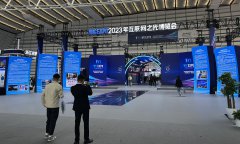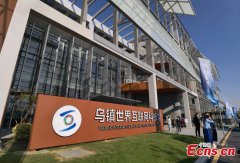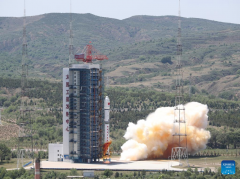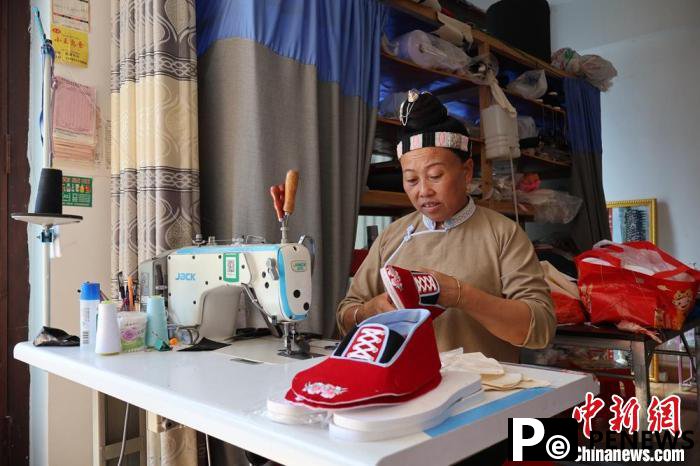Home>>
HK, Macao add thrust to nation's space explorationBy Oasis Hu (China Daily) 08:47, November 09, 2023
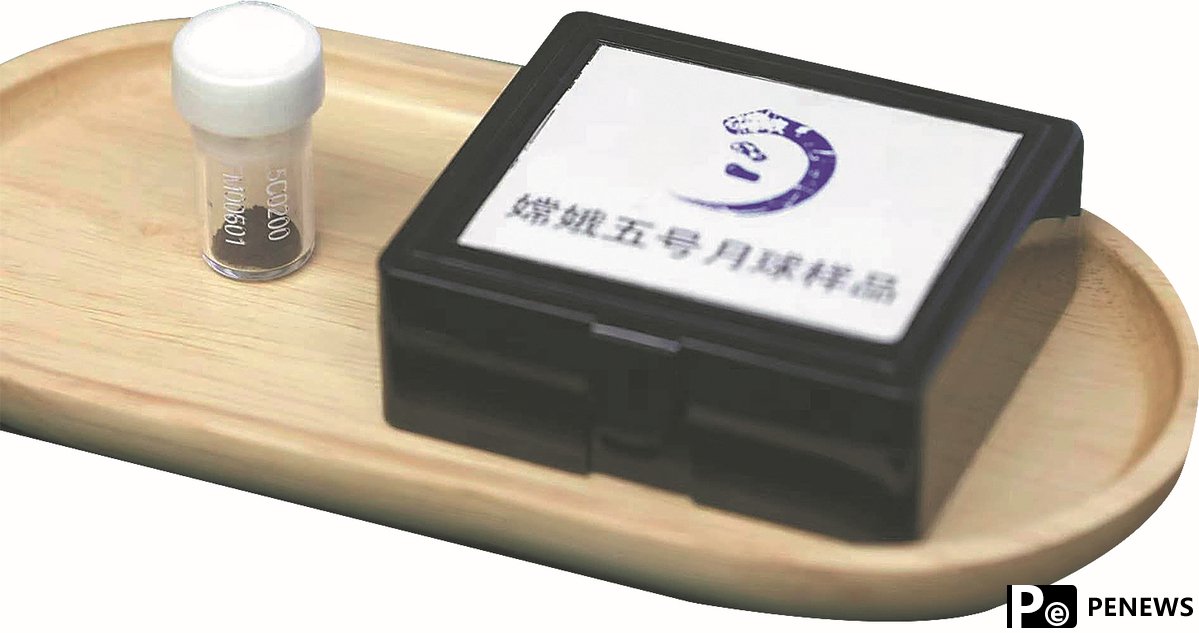
Lunar soil samples collected by the Chang'e 5 probe are displayed at the University of Hong Kong. [CALVIN NG/CHINA DAILY]
Both cities make significant contributions to research
Many people gazing at the moon shining brightly in the night sky wonder what secrets the Earth's satellite holds.
However, few of them have the chance to access lunar soil and study it to unlock such mysteries, unlike Qian Yuqi.
At the start of this year, Qian, a postdoctoral fellow from the Department of Earth Sciences at the University of Hong Kong, or HKU, applied to access lunar soil samples from the China National Space Administration. His application was approved in June.
It was the first time Hong Kong had secured lunar soil samples for study.
Although he is only 28, Qian, a geologist who wears dark glasses and sports a flat haircut, has been studying the moon for nearly a decade.
His enthusiasm for all things lunar runs deep. His computer desktop boasts a screen saver showing the moon. He carries a backpack displaying the Chinese characters for "moon exploration", and a model of the moon sits on his office desk. Qian also repeatedly emphasizes just how interesting his lunar studies are.
Qian's interest in space dates to his childhood. While immersing himself in science fiction films and novels, he noticed that these stories were always set in space, with geologists playing significant roles.
After passing the college entrance examination in 2013, Qian pursued a degree in geology at China University of Geosciences (Wuhan) in Hubei province. He could only choose a major centered on the Earth's geology, as no undergraduate programs on the mainland at that time were specifically focused on planetary science or deep space exploration, he said.
Qian worked hard, as he knew that studying the Earth's geology could lay a solid foundation for exploring other planets. His opportunity soon arrived, with China's lunar exploration program gaining significant momentum.
In 2004, China officially launched the Chang'e project to explore the moon in three phases to fulfill three aims: unmanned lunar exploration, a manned lunar landing, and establishing a lunar base.
The unmanned lunar exploration, or the Chinese Lunar Exploration Program, also consists of three phases: orbiting, landing and returning.
The orbiting phase, which began in 2004, involved Chang'e 1 in 2007 and Chang'e 2 in 2010 exploring the lunar surface from orbit. The landing phase involved Chang'e 3 in 2013 and Chang'e 4 in 2018 landing on the moon's surface for detailed exploration. The returning phase included the Chang'e 5 mission in 2020, which collected lunar samples for a return to Earth.
When the Chang'e project started, many mainland university researchers switched their research focus to the moon and became involved in these missions.

Visitors view replicas of Chinese rockets at an aerospace exhibition in Wuhan, Hubei province. [CHINA DAILY]
Research role
In May 2011, Qian's university established the Planetary Science Institute, with the aim of spearheading research in lunar and planetary science.
The institute organized a lecture at the university to present its research findings. Qian attended the lecture, finding it deeply interesting. That night, he wrote a letter to a senior professor at the institute, stating that he wanted to contribute to furthering China's space endeavors.
Impressed by Qian's ability and enthusiasm, the professor accepted him as his research student — giving Qian access to national lunar research.
Under his mentor's guidance, Qian conducted a lot of research based on data collected by Chang'e 3 and Chang'e 4. He also supported a prelaunch study for Chang'e 5.
The Chang'e 5 mission team aimed to select the best landing site from a 50,000-square-kilometer preselected zone.
Qian remained in his laboratory for many days, extensively reviewing remote sensing archives of the moon's surface captured by satellites. He discovered the eastern region of the preselected zone may contain basalts that are about 2 billion years old — potentially making subsequent soil collections younger than any previous samples secured by other nations, such as the United States and the former Soviet Union.
Such samples could provide insights into the moon's formative history. Given the similarities between early lunar and Earth environments, this could also help scientists unravel the secrets of the Earth's early history.
Qian released a paper suggesting the landing site for Chang'e 5, stimulating extensive discussion among scientists and the mission team.

